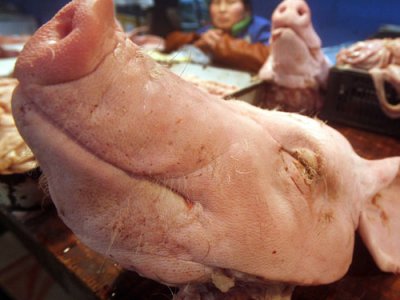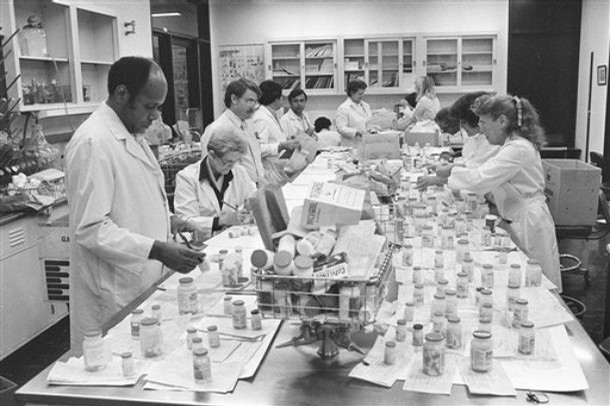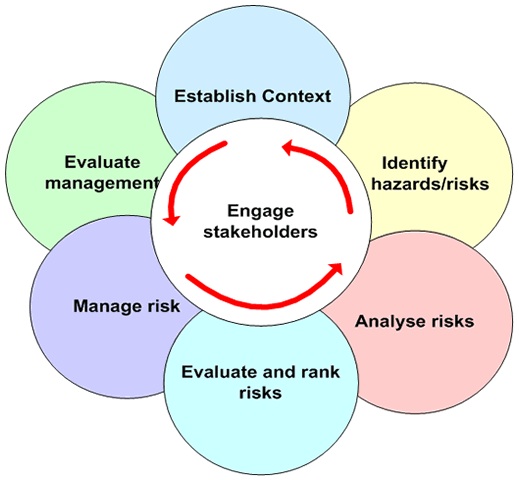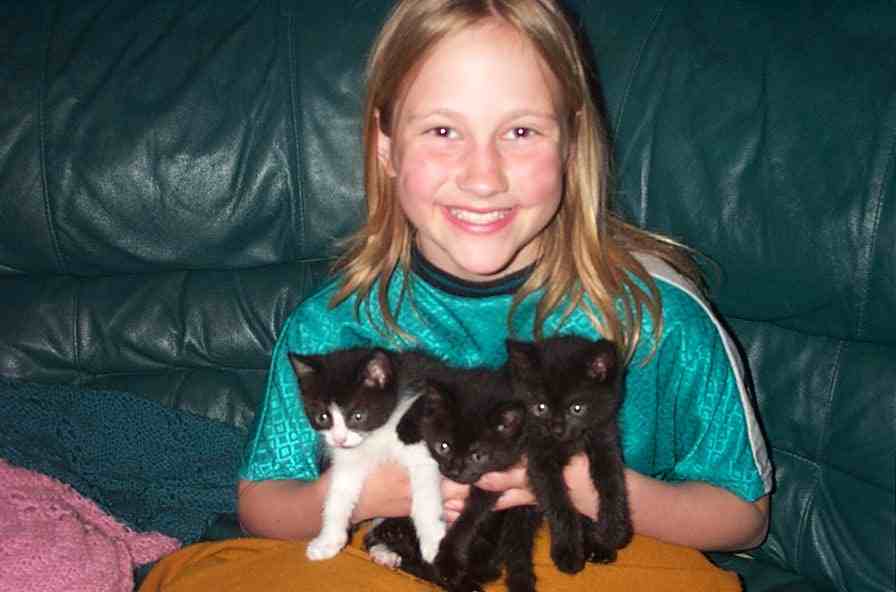Professional golfer Tiger Woods and Japanese automaker Toyota are both struggling under the media spotlight to repair their damaged public images and resorting to public statements and advertizing. But communications alone is  never enough when faced with a risky situation – it’s the combination of risk assessment and management, along with communications, that helps individuals, corporations and governments regain trust and public favor.
never enough when faced with a risky situation – it’s the combination of risk assessment and management, along with communications, that helps individuals, corporations and governments regain trust and public favor.
New research from a team led by Dr. Doug Powell, an associate professor of food safety at Kansas State University and published in the journal, Public Understanding of Science, further validate the idea that words alone are never enough when managing a food safety crisis – actions are also important.
The authors examined two incidents of dioxin contamination of food in Belgium and the Republic of Ireland in 1999 and 2008, respectively. In both cases, dioxins reached the food supply through the contamination of fat used for animal feed. The food and agricultural industries connected to each incident relied on crisis management activities of federal governments to limit adverse public reaction.
 In 1999, the Belgian government delayed communicating with the public and other European agencies about possible risks, failed to acknowledge perceived risks with dioxin-laden feed, and ultimately suffered huge economic losses, a damaged food industry and deterioration in public confidence.
In 1999, the Belgian government delayed communicating with the public and other European agencies about possible risks, failed to acknowledge perceived risks with dioxin-laden feed, and ultimately suffered huge economic losses, a damaged food industry and deterioration in public confidence.
In the winter of 2008, the Republic of Ireland faced a similar dioxin-in-animal-feed crisis and, unlike the Belgian response, promptly communicated with the public, and acknowledged perceived risks by mandating that all pork products released for sale were to carry a special label to indicate they had no association with the potentially contaminated feed.
“Prompt communications with the public, acknowledgement of both real and perceived risks, and control of stigma surrounding a hazardous incident are important factors in effective crisis management,” said Powell. “The Irish government succeeded by not only saying the right things, but by removing potentially contaminated product from commerce in a timely manner. Actions and words must be consistent to manage any crisis and garner public support.”
Abstract below:
Government management of two media-facilitated crises involving dioxin contamination of food
23.feb.10
Public Understanding of Science
Casey J. Jacob, Corie Lok, Katija Morley, and Douglas A. Powell
http://pus.sagepub.com/cgi/content/abstract/0963662509355737v1
Abstract
Incidents become crises through a constant and intense public scrutiny facilitated by the media. Two incidents involving dioxin contamination of food led to crises in Belgium and the Republic of Ireland in 1999 and 2008, respectively. Thought to cause cancer in humans, dioxins reached the food supply in both incidents through the contamination of fat used for animal feed. The food and agricultural industries connected to each incident relied on crisis management activities of federal governments to limit adverse public reaction. Analysis of the management of the two crises by their respective federal governments, and a subsequent review of crisis management literature, led to the development of an effective crisis management model. Such a model, appropriately employed, may insulate industries associated with a crisis against damaged reputations and financial loss.
First published on February 5, 2010
Public Understanding of Science 2010

 They all sucked. And a lot of people got sick and died.
They all sucked. And a lot of people got sick and died. On Friday, McNeil Consumer Healthcare, a division of Johnson & Johnson, announced the recall of several hundred batches of popular over-the-counter medicines, including Benadryl, Motrin, Rolaids, Simply Sleep, St. Joseph Aspirin and Tylenol.
On Friday, McNeil Consumer Healthcare, a division of Johnson & Johnson, announced the recall of several hundred batches of popular over-the-counter medicines, including Benadryl, Motrin, Rolaids, Simply Sleep, St. Joseph Aspirin and Tylenol..jpg) “The Agency has been given an award by the Plain English Campaign for a leaflet advising the over 60s about food safety and the food poisoning bug listeria. Food safety and healthy eating messages are often based on complicated science, but the Agency strives to make these messages as accessible to as many people as possible. We are therefore pleased that these efforts have been recognised by our partners and by the Plain English Campaign.”
“The Agency has been given an award by the Plain English Campaign for a leaflet advising the over 60s about food safety and the food poisoning bug listeria. Food safety and healthy eating messages are often based on complicated science, but the Agency strives to make these messages as accessible to as many people as possible. We are therefore pleased that these efforts have been recognised by our partners and by the Plain English Campaign.” Tiger Woods’s handling of the scandal is a textbook case in poor crisis management, say crisis managers.
Tiger Woods’s handling of the scandal is a textbook case in poor crisis management, say crisis managers..jpg) But good communications is never enough. With any risk, or crisis, or problem, what is required is solid assessment, management and communication. Screw up any one, and the brand or person will suffer.
But good communications is never enough. With any risk, or crisis, or problem, what is required is solid assessment, management and communication. Screw up any one, and the brand or person will suffer..jpg) Once again, it’s raw sprouts, and it’s not like it’s sprout season or something (unlike the often terrible turkey food safety advice the surfaces at Thanksgiving).
Once again, it’s raw sprouts, and it’s not like it’s sprout season or something (unlike the often terrible turkey food safety advice the surfaces at Thanksgiving). Even though we live in central Manhattan (Kansas), there’s a small greenbelt behind the house and we’ve had visitors such as deer, turkeys, and yesterday, a fox.
Even though we live in central Manhattan (Kansas), there’s a small greenbelt behind the house and we’ve had visitors such as deer, turkeys, and yesterday, a fox. Amy has covered what to do if a student pukes in class
Amy has covered what to do if a student pukes in class
 Weese figures a bath is the best way to go (not the oven, right) and that anyone bathing a heavily contaminated animal should wear a mask and gloves, change their clothes after, clean any contaminated surfaces with bleach or another disinfectant and wash their hands.
Weese figures a bath is the best way to go (not the oven, right) and that anyone bathing a heavily contaminated animal should wear a mask and gloves, change their clothes after, clean any contaminated surfaces with bleach or another disinfectant and wash their hands. .jpg)
.jpg) John He and Peter Wong waited on the manicured lawn of Ruby Chinese Restaurant Saturday afternoon for a friend to join them for lunch. The men knew about the salmonella, but thought the restaurant would be open.
John He and Peter Wong waited on the manicured lawn of Ruby Chinese Restaurant Saturday afternoon for a friend to join them for lunch. The men knew about the salmonella, but thought the restaurant would be open. Apparently the Globe and Mail newspaper thinks so too, and published an awesome online review of Ruby, the Chinese restaurant at the center of a Salmonella outbreak. Or it was available, according to
Apparently the Globe and Mail newspaper thinks so too, and published an awesome online review of Ruby, the Chinese restaurant at the center of a Salmonella outbreak. Or it was available, according to  It’s going to get worse.
It’s going to get worse.